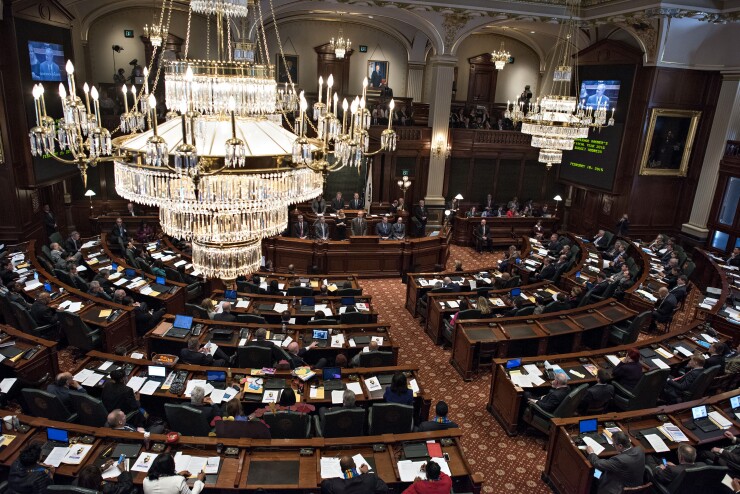A little competition is almost always a good thing, and the same is certainly true when governments compete to provide efficient services and productive environments.
The Illinois Legislative Blockchain and Distributed Ledger Task Force seems to be set up to do exactly that: To figure out how to best leverage a promising new technology across a broad range of applications.
This news will have immediate implications for both the public and private sectors.
On the public side, there are a whole slew of simplistic applications of blockchain, such as improving public records management systems and making government services more transparent.

For instance, I’m trying to get a genealogical record for my family, and it has taken me well over a year and three different offices need to certify that the certified document is legitimate.
All this is insanely wasteful in the post-Satoshi age, where a simple cryptographic signature would have provided more assurance of validity in a fraction of a second and without employing half dozen people in the bureaucratic chain. Streamlining such processes can be considered the low-hanging blockchain fruit, but expect there to be resistance from beneficiaries of the current system.
On the private side, Illinois should provide regulatory clarity on what startups and other businesses can do in the space. Which types of activities are fully supported by law and what are the compliance processes? Are these processes onerous and the equivalent of erecting unnecessary barriers to competition, or are they rational and reasonable hurdles to protect other stakeholders? These are the big questions we think of when choosing the jurisdiction in which to do business, and it is critical in this increasingly competitive environment for governments to offer attractive conditions in which people can thrive.
Political processes are themselves competitive environments with all sorts of motivations driving decisions. One would hope that outcomes are in the broad public interest, but that’s not always the case.
The Illinois government standing up this task force is a good first step in exploring the risks and opportunities of the new technology, and the group membership allocation across agencies and stakeholder groups seems to be a reasonable way to include a range of opinions.
The best outcome would be one that quickly exploits the most basic applications of blockchain to improve public services, while fostering a healthy economic environment for new entrepreneurial ideas and business innovation.





